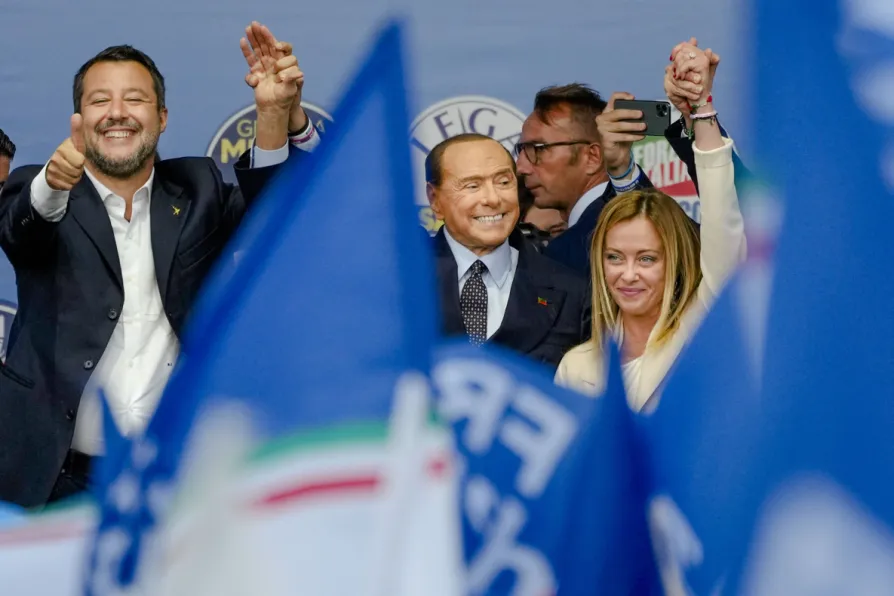Does widespread and uncontrolled use of AI change our relationship with scientific meaning? Or with each other? ask ROX MIDDLETON, LIAM SHAW and MIRIAM GAUNTLETT

 (From left) The League's Matteo Salvini, Forza Italia's Silvio Berlusconi, and Brothers of Italy's Giorgia Meloni attend the final rally of the far-right coalition in central Rome, Thursday, September 22, 2022
(From left) The League's Matteo Salvini, Forza Italia's Silvio Berlusconi, and Brothers of Italy's Giorgia Meloni attend the final rally of the far-right coalition in central Rome, Thursday, September 22, 2022
HERE in Italy, when our good neighbour Carlo invited us to a feast in the village square, it seemed a good idea to accept.
Carlo, a retired bus engineer, is “assessore” to the commune and was elected on the non-partisan citizens’ list organised by our mayor Simone.
Carlo had organised a table, and from our little borgata of half a dozen houses down the hill from the village centre, there would be seven of us.

Once again, our broad-based coalition outnumbered the anti-migrant protest in Faversham, but tackling the sentiment behind this wave of anger requires explaining the real reasons pushing millions into leaving their homelands, argues NICK WRIGHT

Starmer sabotaged Labour with his second referendum campaign, mobilising a liberal backlash that sincerely felt progressive ideals were at stake — but the EU was then and is now an entity Britain should have nothing to do with, explains NICK WRIGHT

There is no doubt that Trump’s regime is a right-wing one, but the clash between the state apparatus and the national and local government is a good example of what any future left-wing formation will face here in Britain, writes NICK WRIGHT










